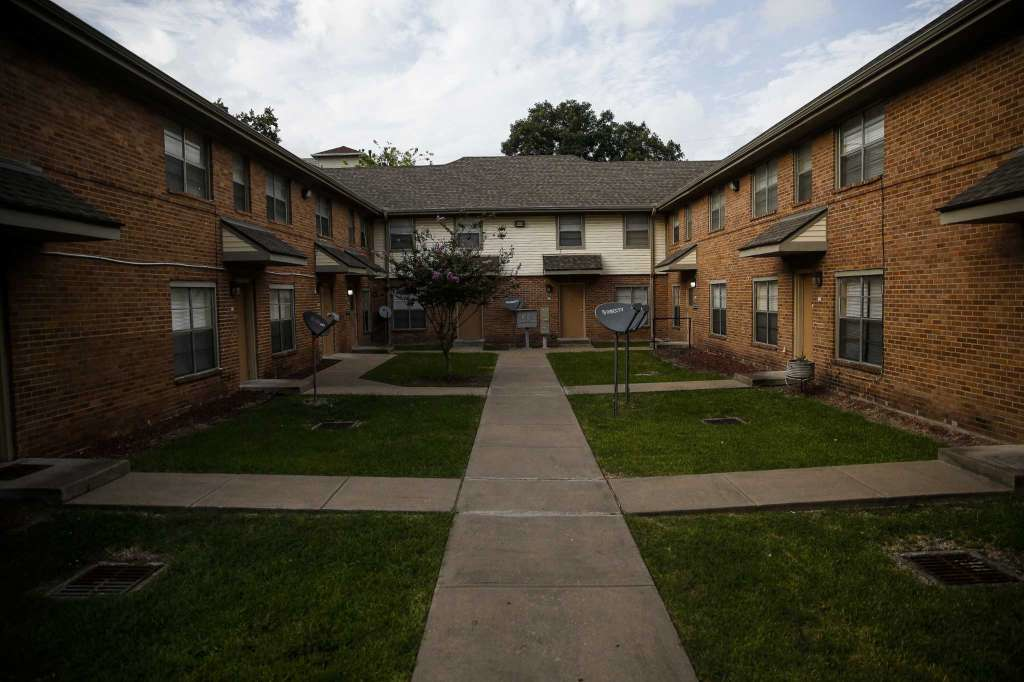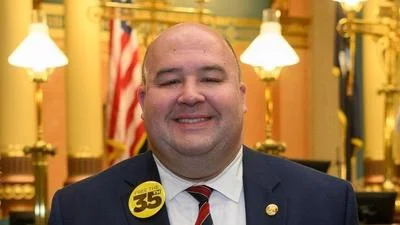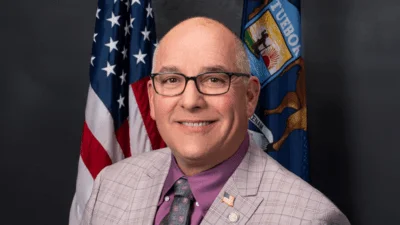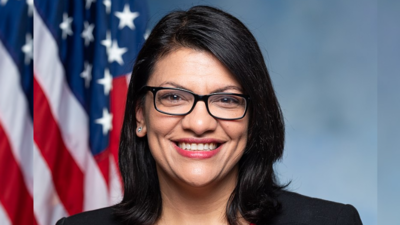City of Detroit issued the following announcement on Jan 12.
LISC Detroit and Detroit Mayor Mike Duggan announced today a $10 million investment from KeyBank Community Development Lending and Investment (CDLI) toward the creation and preservation of affordable housing in the city through the Detroit Housing for the Future Fund (DHFF).
The DHFF, which was announced by Mayor Duggan in 2020, represents the largest single private commitment to affordable housing in Detroit’s history. The DHFF is a private investment fund managed by LISC that is committed to investing private capital into affordable housing projects in need of gap financing to move the developments forward. With a sixth project also announced today, DHFF projects representing about $40.7 million in total development costs, with a combined DHFF investment of more than $12.7 million, have been approved since the fund’s launch in the fall of 2020. Together, the deals represent the creation or preservation of a combined 224 units of affordable housing in neighborhoods across the city. The DHFF is a part of the larger Affordable Housing Leverage Fund, which is an initiative of the City of Detroit’s Housing & Revitalization Department.
“KeyBank is committed to the communities we serve. This investment is a key part of our efforts to create more strategic partnerships with Community Development Financial Intuitions across the nation and build on the success of our National Community Benefits Plan,” said Derek Reed, vice president of KeyBank CDLI. “We are proud to help LISC Detroit and the City of Detroit with their shared goal of creating and preserving affordable housing, and to making sure that no one is left behind as Detroit continues its latest renaissance.”
“Leading change for the better and being a responsible corporate citizen is at the heart of KeyBank’s purpose in Detroit and all of the communities we serve,” said David Mannarino, KeyBank Michigan Market president and commercial sales leader. “We look forward to continuing to support affordable housing and community development projects, small business and home lending in low- and-moderate income communities, and philanthropic efforts targeted toward education, workforce development and creating safe, vital neighborhoods.”
The Duggan administration has made affordable housing a top priority as it works to help Detroiters stay in their homes amid increasing rents as the city’s turnaround continues. The administration set a goal of preserving 10,000 units of existing affordable housing and the development of 2,000 units of new affordable housing through multiple public and private housing initiatives including DHFF. As of today, nearly 1,300 new affordable housing units have opened or are under construction in the city while nearly 5,700 existing affordable units either have had their affordable rents extended for another 15 to 30 years or are in the pipeline to have them extended.
“We are seeing major progress in neighborhoods across the city, but we have to ensure that all Detroiters can benefit from our city’s comeback, especially those who stuck with the city during its toughest times,” said Mayor Duggan. “KeyBank’s generous commitment helps ensure that all Detroiters, no matter their income, will have the opportunity to live in quality housing and in any neighborhood they choose.”
That commitment to community lines up with one of KeyBank’s main missions. KeyBank has a long history of lending, investing and providing charitable support in Detroit and Michigan. Since 2017, KeyBank has invested more than $152 million in its Michigan Market through its National Community Benefits Plan. Highlights include:
- A $300,000 grant to Michigan Ability Partners to support homeless veterans.
- $17.4 million in financing through KeyBank Community Development Lending & Investment for Selinon Park Apartments in Portage, a 75-unit affordable housing complex targeted to serve people with special needs or those experiencing or at risk of homelessness.
Sixth DHFF project announced
In addition to the $10 million investment by KeyBank CDLI, LISC Detroit also announced today the sixth project to tap the fund.
The Weber Apartments, a currently vacant historic apartment building at 655 Hazelwood St. in the Piety Hill neighborhood, will be completely renovated. The Weber, built in 1927, will feature 44 units and be 100 percent affordable housing, with six apartments at or below 50 percent area median income (AMI) and the remainder at or below 80 percent AMI. This translates to rents between $750 and $1,200 a month for one-bedrooms.
The developer, Hazelwood Partners LLC, received a $2.9 million loan through DHFF for the $4.4 million project. The renovations are expected to be completed late this summer.
How DHFF works
Developers, especially housing developers, often have difficulty finding capital to finance gaps in development or redevelopment costs. The DHFF helps fill that gap by providing access to capital and financial products specifically designed to address the challenges affordable housing developers face.
The DHFF invests in the preservation of regulated and naturally occurring affordable housing (NOAH) units throughout the City to keep them affordable, as well as the development of new mixed-income and affordable housing in targeted multi-family housing areas. The DHFF primarily finances housing that is affordable to households at or below 60 percent of area median income (AMI), but will give priority to projects with lower incomes in order to direct the funds where the need is greatest. For example, 60 percent of AMI for an individual is $33,600, and $48,000 for a family of four.
The fund also has a mission of helping minority developers participate in the city’s turnaround through the Developers of Color Predevelopment Matching Grant Fund. This is a key goal because developers of color are currently underrepresented in the Detroit’s growth and revitalization efforts. By helping finance their developments, LISC Detroit are not only creating affordable housing but equity in development. Developers can go to www.detroithousingforthefuturefund.org to apply or learn more about the DHFF and Developers of Color Fund
Original source can be found here.





 Alerts Sign-up
Alerts Sign-up